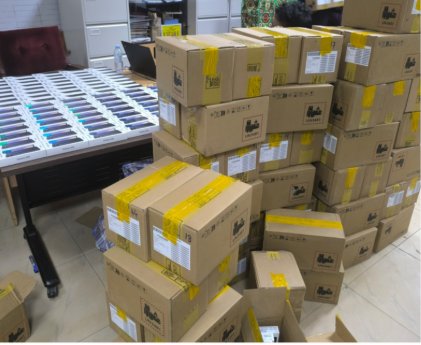Uganda Revenue Authority (URA) has registered a significant milestone in its efforts to combat the illegal smartphone trade, following the arrest of a major suspect in downtown Kampala.
A specialized enforcement team intercepted the suspect during an intelligence-led operation that uncovered a large shipment of unlawfully imported mobile phones.
Officials estimate that the impounded consignment could recover more than Shs500 million in unpaid taxes and penalties once investigations conclude.
URA enforcement units reveal that the illicit phone market is fuelled by concealed imports and the circulation of refurbished stolen devices that infiltrate the busiest trading hubs.
Kampala’s central electronics corridor from Kampala Road through Luwum Street has emerged as a centre for unusually low-priced smartphones. New models appear long before official distributors release them, and storage rooms are stacked with unregistered boxes bearing foreign labels.
Investigators say smugglers are using increasingly sophisticated concealment methods, including embedding phones in clothing, power bank shells, and dismantled laptop frames. Others use long-haul buses as mobile storage units, while boda boda riders transport parcels through congested streets to evade surveillance. A rising technique known as “human warehousing” involves networks of people who individually carry small quantities of devices across borders in coordinated movements.
“We are committed to protecting our economy and will not relent until the smartphone market is free of these economic criminals,” stated enforcement officer Alex Murungi, reaffirming URA’s determination.
URA notes that illegal trading deprives the country of critical tax revenue, distorts fair competition, and puts consumers at risk of counterfeit or stolen devices that lack warranties or safety guarantees.
During the operation, officers seized 4,371 phones, ranging from basic Nokia models to Samsung Galaxy smartphones.
URA says it will continue strengthening enforcement through smarter tax administration, improved import systems, and advanced monitoring to disrupt increasingly innovative smuggling networks.























